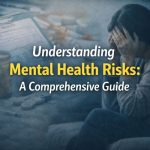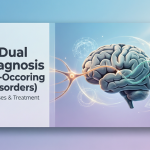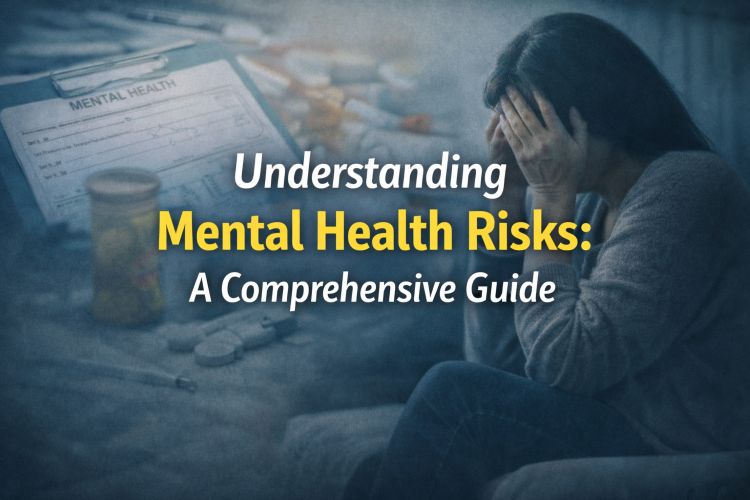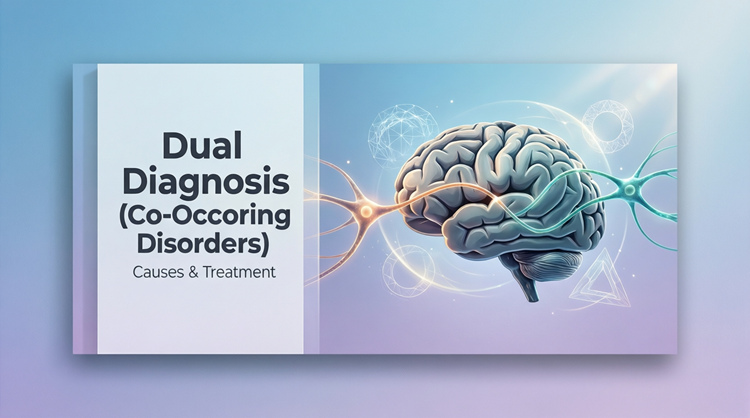Adjustment disorders are a class of illnesses that can have a powerful impact on the individual’s emotional and psychological well-being. However, while other mental conditions are chronic, adjustment disorders are typically triggered by specific stress or life events. It is thus crucial to identify the various forms of adjustment disorders, their causes, and symptoms to arrive at the right disease diagnosis and treatment.
What is Adjustment Disorder?
As the name implies, Adjustment Disorder is a mental health disorder that is characterized by the failure of an individual to adapt to change.
Adjustment disorder is best understood as a disorder of dysphoria experienced based on stressors or a change of status. Symptoms like these are usually more severe than expected and interfere with basic activities of daily living. The disease takes typically within 3 months of the stressor and the disease may take up to 6 months notwithstanding, due to the length of the stressor the disease may last longer.
Types of Adjustment Disorders
Adjustment disorders are grouped into various types depending on the main signs identified in the patient. Types include:
Depressed Mood: This kind is mostly characterized by hopelessness, worthlessness, and no joy in things that a person or groups of people once found pleasurable.
With Anxiety: Some of the symptoms linked to this state include obsession, anxiety, and distraction.
Mixed Anxiety and Depressed Mood: Provide a list of possible forms of anxiety and depression to which these signs may belong.
Disturbed Conduct: This kind for instance illustrates behavioral concerns, for instance, aggressive actions like temper outbursts, noncompliance, and fidgeting. Very rampant in children and adolescents especially those in school-going ages.
Disturbed Emotions and Conduct: Examples of the identified disability include distress, depression, and anxiety, problematic behaviors.
Unspecified: Any sign or symptom that does not fall in the withdrawal or perceptual and cognitive psychological symptoms or other social psychological symptoms or any sign or symptom that is associated with a general medical condition.
100% Confidential Support is Available 24/7
No matter what you’re going through, you’re not alone. Our dedicated team is here to provide a safe, judgment-free space where you can talk openly and honestly. Whether you need emotional support, resources, or just someone to listen.
We’re here for you—completely confidential and always respectful of your privacy. Call us today!
Causes of Adjustment Disorders
Deland Treatment Solutions
Battling with Drug and Alcohol Addition? Remember, you are not alone and we are here to help you!
The nature of adjustment problems may therefore depend on some factors including but not limited to. Common stresses include:
Major Life Changes: This highlights what may lead to adjustment difficulties when one has begun a new job, relocated to a new town, gotten married, or considering having a child.
Relationship Problems: Marriage stressors, relational breakdowns, and other family-related issues can be very stressful.
Loss: This can be due to bereavement which involves the death of a family member, or pet, rejection of a job, and others leading to adjustment disorder.
Financial strain: It also includes the possibility of choosing finance and debts as a cause for stress at work among respondents.
Scholastic Pressures: Children who experience difficulty in school or children under pressure in terms of academic performance may develop adjustment disorder.
Health Concerns: Sickness to an individual or close friend or family member is always a concern and can be so taxing.
Traumatic Events: Conflict-related changes may come from unintended incidents, disasters, and acts of aggression.
Recognizing the Signs: Symptoms of Adjustment Disorder
Adjustment disorders are several types of disorders including experiencing distressing symptoms within three months of the start of a stressor and lasting only for not more than six months after the removal of the stressor.
Some examples of emotional signs are low morale, marginalizing hopelessness, negativity, and easily getting stressed or angered.
This may manifest as having lesser social interaction, poor concentration, poor obedience to instructions or instruction, or taking higher risks.
Others may be, sleep disturbance or even feelings of fatigue, loss of appetite, headache or stomach ache, or any other sickness within a person that cannot be categorized easily.
There is therefore need to differentiate adjustment disorders from other mental health issues. However, if your symptoms are more severe or persist for more than six months, you should consult a mental health professional.
Diagnoses and Treatments
There is no laboratory test for diagnosis of adjustment disorder and one has to be assessed by a mental health care professional. The examination often involves a conversation about the current illness, past medical history, and past several days or weeks. A professional might decide to employ subsets of the DSM-5 criteria to arrive at the diagnosis of a specific condition.
Finding Your Path to Recovery: Treatment Options for Adjustment Disorder
The good news is that adjustment issues are highly treatable. Here are some popular treatment methods:

Individual Therapy: Cognitive-behavioral therapy (CBT) can help you manage stress, build coping skills, and process unpleasant emotions.
Family treatment: Involving family members in treatment can help give support and increase communication within the family.
Support Groups: Connecting with people who have had similar struggles may give validation and a sense of belonging.
Lifestyle Changes: Getting enough sleep, exercising regularly, and practicing relaxation methods can all help you feel better emotionally.
Moving Forward Following an Adjustment Disorder
Adjustment disorders as a category are regarded as universal and readily treatable diseases that may manifest as a reaction to a significant life change or stressor. The first step to seeking help, and receiving relevant treatment includes acknowledging that there are many forms, many possible causes, and many possible expressions or signs of the issue. If diagnosed properly and put under appropriate treatment those who suffer from adjustment disorders do not have to live lives that are full of misery and hindrances.
If you or your loved one experience some signs of an adjustment problem, kindly call us at (386) 866-8689 or visit DeLand Treatment Solutions for assistance. Prompt treatment of such situations has been proven to have favorable impacts on curing and an overall improvement in health.





















